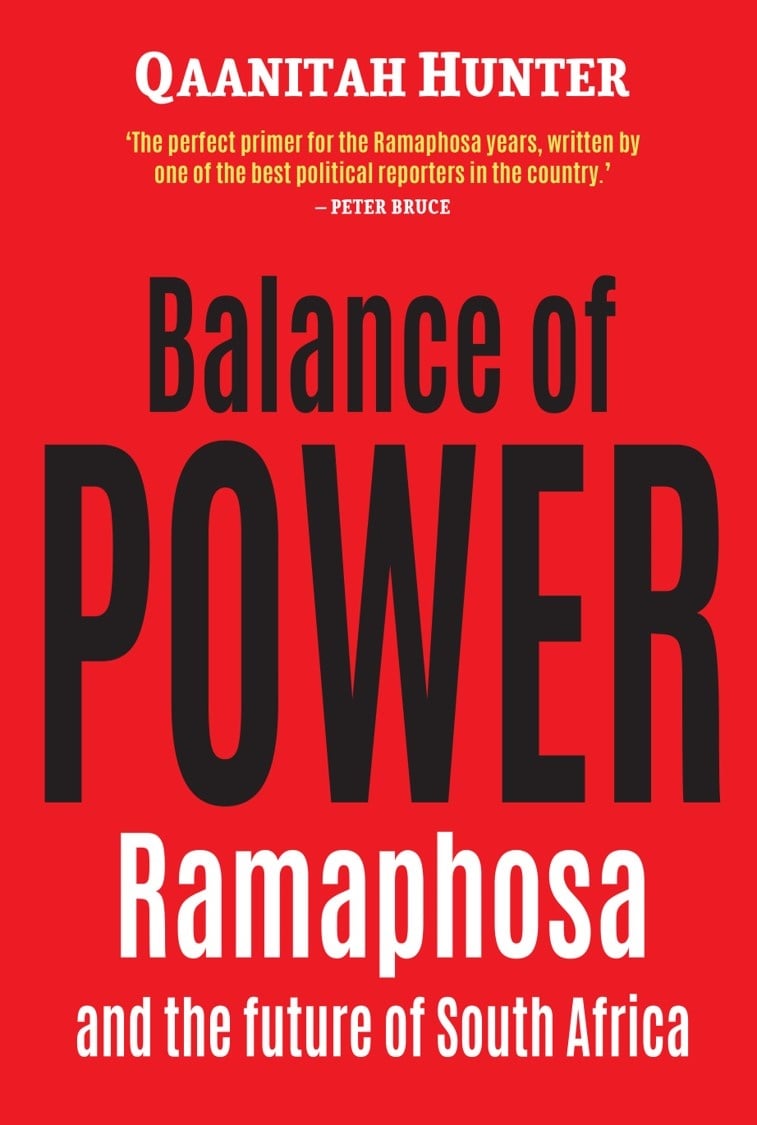
Tom Moyane, the man whom Jacob Zuma had appointed head of the South African Revenue Service (Sars), was invited one evening to Cyril Ramaphosa's private home in Hyde Park, Johannesburg, for a discussion with the newly elected head of state.
It was just over a month after Ramaphosa became president. Under normal circumstances, this would be a courtesy invitation to the head of one of the most important institutions of state. But there was already a cloud hanging over this visit, which is why it probably wasn't surprising that it quickly degenerated into a screaming match between the two.
Ramaphosa is definitely unlike his predecessor, whose middle name literally means 'he who smiles while stabbing you'. The president was serious in his bid to fix Sars and he wanted answers from the man who was at the help when it descended into dysfunctionality. He wanted to know for instance why a R70-million VAT refund had been paid by Sars to the Gupta company Oakbay. Ramaphosa pushed harder. How could things be fine at Sars when Moyane's deputy, Jonas Makwakwa, had been caught on camera stuffing large amounts of money into an ATM machine?
But Moyane was arrogant, impudent even, telling Ramaphosa that there was no second-in-command at Sars and he was the only one in charge. Ramaphosa's response? An angry 'Whatever'. The thirty-minute meeting ended when an irate Ramaphosa asked Moyane to resign as commissioner of Sars, to which the latter responded with a definite 'no'.
READ: Sars relaunches business tax collection unit shut down under Moyane
Ramaphosa was determined to show Moyane what he was really capable of, and decided to discipline him, building the case that he had lost confidence in him. The president was clear; Moyane had to go if Sars had any chance of recovery. What happened next was an extraordinary example of the fightback mounted by those involved in state capture.
Moyane was a long-time civil servant when he was appointed to Sars in 2014 by Jacob Zuma. While a lot has been said about his tenure at Sars, Judge Robert Nugent best described it when he reported: 'the day Mr Moyane took office was a calamity for Sars'.
When Ramaphosa came to power, Sars and its reputation were at their lowest point. In his first state of the nation address the new president announced that he would appoint a commission of inquiry into tax administration and governance at Sars under Judge Robert Nugent, in an effort to restore the credibility of the service and strengthen its capacity to meet its revenue targets. But while that was happening, Ramaphosa suspended Moyane and hauled him before a disciplinary inquiry.
For seven months after that tense meeting in Hyde Park, Ramaphosa and Moyane played an epic game of cat and mouse. This was characterised by co-ordinated media leaks on both sides as well as threats and counter-threats of legal action. Ramaphosa wanted Moyane gone but the latter refused to give him the pleasure of departing, not without a fight at least.
First, he challenged the appointment of Judge Kate O'Regan as chairperson of his disciplinary hearing, claiming she would be biased against him because of her links to the NGO Corruption Watch, which had campaigned for Moyane's removal. Ramaphosa obliged and appointed Advocate Azhar Bham instead. Then Moyane pulled the same trick at the Nugent inquiry, creating an array of sideshows and insisting that he was being unfairly treated, instead of answering the substance of the case against him. He presented himself as the ultimate victim: his lawyer, Advocate Dali Mpofu, argued that there was a 'double-barrelled attack on the commissioner'. When Judge Nugent dismissed this, Moyane threatened to go to court. There was a constant back and forth, and all while the commission was hearing granular details of how Sars had become bereft of integrity and working conditions there were marred by fear and intimidation.
ANALYSIS | Genesis: How the SARS rogue unit narrative was born and normalised
By October 2018, time was up. Judge Nugent recommended in his preliminary report that the president fire Moyane even though the disciplinary inquiry against him had proved inconclusive. According to the judge, Moyane had arrived at Sars 'and then dismantled the elements of governance one by one. This was more than mere mismanagement. It was seizing control of Sars as if it was his to have . . . What Sars was, and what it has become, is sufficient proof in itself that integrity and governance failed on a massive scale,' Nugent wrote. After listening to months of testimony from dozens of witnesses both inside and outside Sars, the judge believed that the only way Sars could ever recover was if Moyane went immediately.
Ramaphosa pulled the trigger in early November, dismissing Moyane from the job for which he was paid R3.7 million per annum. The president was direct with him, saying that Nugent's report 'paints a deeply concerning picture of the current state of Sars and the reckless mismanagement which characterised your tenure as Commissioner of Sars'.
In Nugent's final report submitted in December, he recommended that the national director of public prosecutions consider criminal prosecution for the awarding by Moyane of a contract to advisory company Bain & Co. for the restructuring of Sars, which had ultimately led to the Revenue Service's collapse.
Moyane's fight was not yet over and, armed with the legal prowess of Advocate Dali Mpofu, he went to the High Court to have Ramaphosa's decision to fire him suspended. But Judge Hans Fabricius was scathing in his judgment, even condemning the way Moyane and his legal team had conducted themselves during the proceedings. Not only did Fabricius rule against Moyane, but he reaffirmed Ramaphosa's decision to fire him as correct. 'Selfish personal interest cannot be weighed up against the national interests, and the stability of the Revenue Services in the context of the South African economy as a whole. In my opinion the President has acted rationally, lawfully and fairly. There are no facts to show otherwise. I need scarcely say that this is certainly not a case where I should grant any relief at all, be it on an interim basis or otherwise. The common cause facts certainly establish no basis for any relief at all, and the repetition of gratuitous insults hurled against the President and [Judge Nugent] do not establish any cause of action worthwhile of attention. I therefore agree . . . that the case made out by [Mr Moyane] is deeply flawed. It is not a proper case, nor a strong one, let alone the "clearest of cases".'
Still, Moyane's cowboy-like counter-offensive was not yet over. Relying on apparently bad legal advice, he took the case to the Constitutional Court, which in February 2019 dismissed his bid. Later on in the year, he attempted to take on Pravin Gordhan at the state capture commission of inquiry but Deputy Chief Justice Raymond Zondo rejected his application to cross-examine his predecessor at Sars.
ALSO READ: 'One person at a time.' Kieswetter's strategy for fixing Sars
The Nugent report had also recommended that there should be transparency in the appointment of the new commissioner. Ramaphosa set up a panel led by former finance minister Trevor Manuel to shortlist and interview candidates suitable for the job. Almost a year after he asked Moyane to resign, Ramaphosa announced that former Sars deputy commissioner Edward Kieswetter would lead the organisation from 1 May 2019. The panel who conducted the interviews believed that he emerged as the strongest candidate from the six applicants shortlisted. Kieswetter had served as deputy commissioner under Pravin Gordhan between 2004 and 2009 and then went on to the private sector where he was group chief executive of Alexander Forbes. When he returned to Sars as the new commissioner, Kieswetter said he was ready to rescue the institution from the 'unfortunate tragedy of the last four years'.
Interestingly, Moyane's fightback was continued by the EFF, which rejected Kieswetter's appointment, claiming he was a nephew of Manuel's and that the two had a close business relationship. The former minister sued the EFF and won a half-a-million rand claim against them for defamation.
* This is an extract from Balance of Power. Ramaphosa and the future of South Africa by Qaanitah Hunter, published by Kwela Books, available in book stores now.




 Publications
Publications
 Partners
Partners











